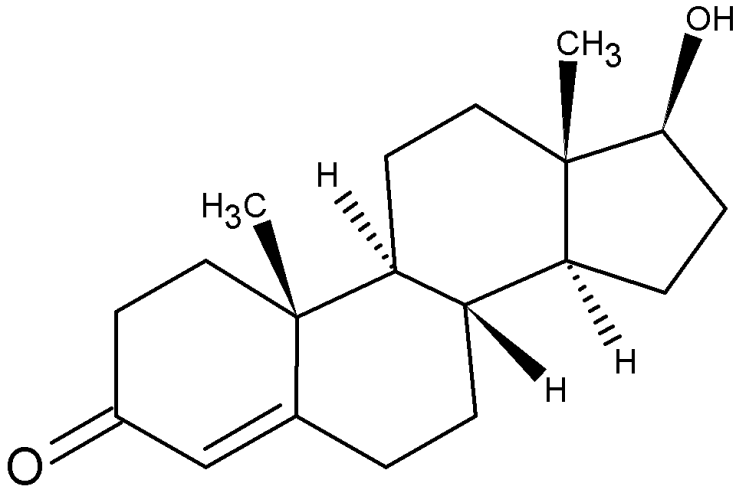Low Testosterone Treatment Options for Men: Could Hormone Replacement Be The Fountain Of Youth?

People are always searching for ways to make themselves look and feel rejuvenated. Low testosterone treatment may be the newest thing in male vitality. Physicians all across the country are starting to implement options like testosterone replacement therapy (TRT) for men with "low-t."
Testosterone replacement therapy isn't a recent practice. The first recorded discovery was in 1849 by Arnold Berthauld, according to the Urological Sciences Research Foundation. Berthauld concluded that when roosters were castrated, they stopped fighting the other animals and their comb fell back. When their testes were replanted, they reverted back to their normal behavior.
"The testes act upon the blood, and the blood acts upon the whole organism," he famously said.
Commonly known as the male sex hormone, testosterone is secreted by the testicles, which are responsible for the development of the male sex organs in childhood and sperm in adulthood. A decrease in the production of testosterone could lead to failure of the testicles, decrease in libido, changes in sleep patterns, and physical or emotional changes.
Prescribing Testosterone to Men with Low T Levels
In 1988, Dr. Abraham Morgentaler started prescribing testosterone to men with low levels of the hormone.
"There was only a small cadre of about a dozen physicians around the country who were interested in treating men for what came to be known as 'andropause,' or 'male menopause.' As a urologist, I was particularly concerned that testosterone treatment would cause rapid growth of undetected prostate cancers," he told Medical Daily.
Dr. Morgentaler, a urologist at Harvard Medical School, the founder of Men's Health Boston, and author of Why Men Fake It: The Totally Unexpected Truth About Men and Sex, believes that while TRT might not be the elixir to solve every male issue, it does help with many symptoms, such as decreased sexual performance and mood.
Hypogonadism, or low serum testosterone, affects around 39 percent of men over the age of 45. As men get older, their natural levels of testosterone decrease. According to the American Urological Foundation, the incidence of low testosterone increases from about 20 percent of men over 60, to 30 percent of men over 70, and 50 percent of men over the age of 80.
According to the American Diabetes Association, 70 percent of men with low testosterone reported cases of erectile dysfunction and a low sex drive. "They also cite that low testosterone is a common condition that often goes undiagnosed because its symptoms are similar to other conditions. If you have type 2 diabetes, you are twice as likely to suffer from low testosterone as a man without diabetes."
Benefits of Testosterone Replacement Therapy (TRT)
Dr. Ted Mimlitz, CEO and Co-founder of Men's' Medical Institute as well as the Medical Director of Maternity Services at DePaul University, believes that testosterone replacement therapy (TRT) should be a more widely practiced low testosterone treatment option for men.
"Testosterone replacement therapy should be more widely practiced because it works," Dr. Mimlitz told Medical Daily. "Once a man hits the age of 30, his testosterone levels begin to decrease each year by one or two percent."
Many of his patients have seen an increase in their energy, mood and concentration. "Increasing a man's testosterone levels has been shown to prevent heart disease, hypertension, osteoporosis and mortal diabetes," said Dr Mimlitz.
Most men aren't aware of their declining testosterone because it happens slowly over many years.
The simple blood test to determine your testosterone can be done by your primary care doctor or an endocrinologist. Normal results vary. Factors such as age and other health related issues come into play, but on average the levels should be around 300-1000.
Increasing TRT Availability for Men with Low T
Dr. Gino Tutera, founder and creator of SottoPelle Hormone Pellet Replacement Therapy in Arizona, believes that many patients are led to believe that their decreased libido, increased weight gain, and constant tiredness are simply a result of old age.
"By utilizing testosterone hormone replacement therapy, the aging process is significantly altered by minimizing weight gain and providing an increase in energy and libido," Dr. Tutera told Medical Daily.
Now, many medical centers across the country are opening up with the intent of helping men regain some of their vitality with TRT. Dr Tutera's clinic offers hormone pellet therapy, which he says provides a steady dosage of natural hormones straight into the blood stream.
Dr. Ken G. Knott of Youth Enhancement Systems also has a clinic specializing in natural hormone therapy in Atlanta, GA. He believes that a big part of the reason why other physicians aren't prescribing low testosterone treatment options for men, like TRT, is because "there is a fundamental lack of training on testing for testosterone, testosterone replacement therapy — doctors are not properly trained in medical school concerning testosterone," Dr Knott told Medical Daily.
The common misconception is that many doctors fear that a TRT regimen will lead to an increase in prostate cancer, congestive heart failure and other illness. Those are "false claims," said Dr. Knott.
"My patients have found that hormone pellet therapy leads to enhancement of libido plus an increased sexual drive; increase in lean body mass and a decrease in body fat; increase in muscle weight, size and strength," added Dr. Tutera.
"They become more productive at work, more engaged and attentive at home, and more active socially. Simply put, they are acting 15-20 years younger," said Dr. Mimlitz.
Sources:
Hayes, FJ. Testosterone-Fountain of Youth or Drug of Abuse?. The Journal of Clinical Endocrinology & Metabolism. 2000.
Topiwala S. Testosterone. MedlinePlus. 2012.
History of Testosterone Replacement Therapy (TRT). USRF. Accessed 12 June 2013.
Published by Medicaldaily.com



























